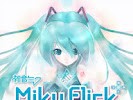The Washington J-POP culture concert of AKB48 attracted over 2 thousands audience, though there’s no official figure and the reported number is significantly vary from Media to media. Honestly this number is very disappointing. In Japan their concert gathers tens of thousands of people for each day of several days row concert.
This is their 3rd live-concert in U.S, and the most successful one just because the previous two were complete fail. Again there’re no official number but some people who were at the concert reported there’re only 1 thousand people in the theater of maximum 7,000 capacity.
The good comparison can be made with Hatsune Miku at Anime Expo 2011 at L.A. Total more than 5 thousands people watched her live concert, along with thousands more online viewers. From my tiny experience of conversing with my friends, it is almost clear that Hatsune Miku has seized Otaku community’s crave seriously. Like Pokemon has become central figure of Kid’s game, and no longer considered as some weird import from Japan, Hatsune Miku seems to be exactly what American Otakus has been craving for. My basic understanding of Hatsune Miku is simple, she is representing “Cyber Pop Japan” which we can trace it’s origin to Akira or Evangelion. This cyber thing can be laughed off as a peculiar obssesion, but since they are so of high-quality, they succeeded capturing Americans’ respect, starting from some early-adopter Americans to nationwide phenomenon.
At this point, we should note the different perspective toward Otaku between American and Japanese. For American, the word is often used in a Marketing-related context, where obsession is translated into ‘focus, originality and remarkableness’, in Japan, the word Otaku suggest more negative impression to the person, that he or she is unsocial that hide themselves into small closet of imaginable world. So American tend to associate the word with high-quality, being remarkable, and dedication while for Japanese it has a very unsocial and somewhat dangerous sound of word.
Let’s back to AKB48. If the reason behind Miku’s success in U.S (and world) is that she is right in the middle of Japanese Pop Culture, sort of commonly perceived as hyper industrial, cyber, plasticity thing, how American understand AKB48 in the context of J-Pop culture?
One thing we should aware is Americans or any other countries other than Vietnam, or HK has yet to welcome full-all-star-line-ups of AKB48. This time, Washington concert was held right after the major concert in Saitama Super Arena and when Atuko Maeda was in HK. So it must has been more relaxed, lied-back mood, understandably.
In addition, though this is just my guess with no solid proof, like Manga, or Anime, Miku is not a human. She doesn’t have physical existence (sorry Miku fans…). So you can easily produce her concert anywhere in the world at the same time. There is no need to manage her time or care about her health. She even don’t need to travel, which is very time consuming and causing headache fro management of musicians. So essentially Miku can exist anywhere in the world, and her concerts are not necessarily run by Japanese companies but any companies or organizations in the world can do it. On the creation side, if they make perfect English version of Miku (and all of other languages’ version), it must create the ubiquitous network of Miku all over the world at a speed impossible for any human being. Contrary, even though having more than 200 members in the group (or because of too many numbers), AKB48 is a human and needs tons of big and small tasks to release songs or make them standing on the stage of arena. It makes hardly any sense to invest tons of money on the promotion for American or Euro market where seemingly there’re less chance to scoop the money they spent. And they are enjoying tremendous sales in Japanese market, the world second largest market. Also it is more reasonable to go for China than America since in China their reception is more positive and never considered some weird thing from Japan. Chinese people look Japanese culture not something they want to make fun of but something they dream of having in their own homeland.
Actually AKB48 is difficult to understand for total strangers. AKB48’s popularity is based on personal bond and support for certain member of the group, that fans buy tons of the same record just to cast ballots for his or her favorite, and also on the story that his or her favorite member is rising onto the top-team. It’s kind like an American-Idol but unlike AI, it closely tied with money and by no means stack up to idols in AI in term of music talent. Given the fact no body knows American Idol in Japan and even if they know, they may never care about what’s going on there, how can we expect AKB48 can draw a large number of audience in America?
This also comes down to the ability of ‘verbal communication’. If they speak foreign language, which people can’t understand at all, the end, it’s done. Of course, This is far more true for those who hugely relays on story-based music act than music-based one. See K-Pop in Japan. No Korean talents who can’t Japanese well has successful career there. The same is true for AKB48.
But with the rapid rise of China, where Japan shares same affection for Kawaii culture, will AKB48 continue to be the top representative of Kawaii pop scene? Now Japan is where Asians are looking up, dreaming of, Asians fans are generous enough to accept them speaking only Japanese (and English). But someday, when they catch up Japan, speaking their language is gonna be essential or though less likely, Chinese (language) might be defact standard for all Asian artists (?).
How do you think about AKB48’s future in Western and Asian Market, or Hatsune Miku, K-pop in the same markets? Or the future map of entertainment industry in Asia? Sound off in the comments.













